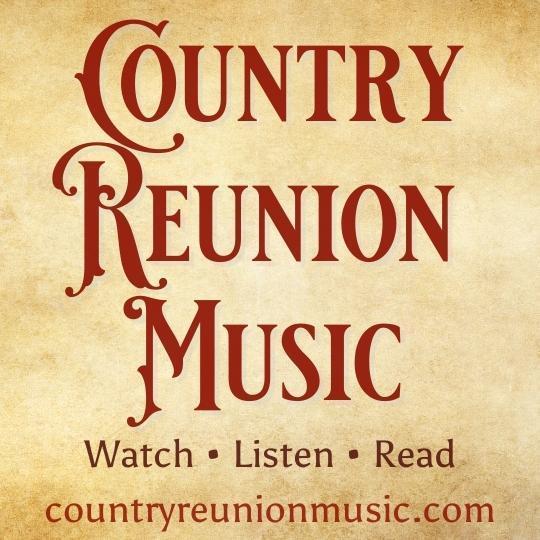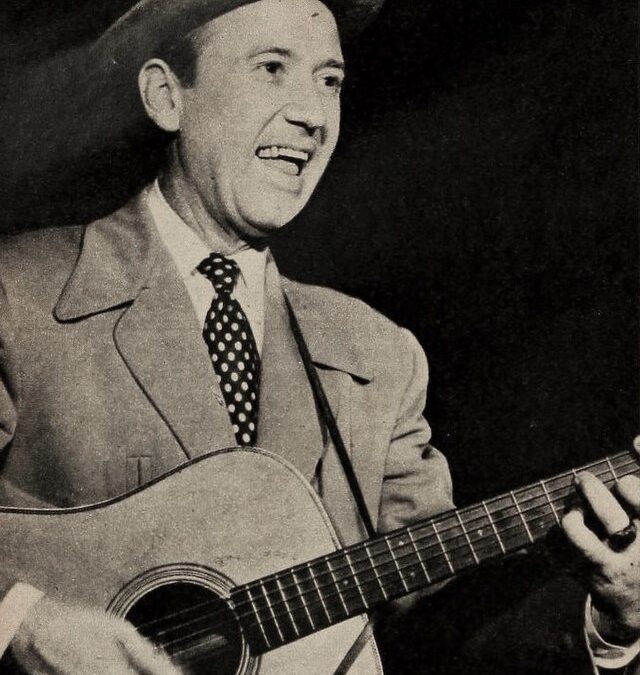It only seems fitting that the man known as Mr. Country Music would have been tapped to host the first network television show exclusively for the country audience.
Clyde Julian Foley, nicknamed “Red” for his ginger-colored hair, was already an experienced host of radio and live stage productions, when Ozark Jubilee premiered on ABC TV in 1955 for its six-year run. In fact, he had already become the first country music performer to host a network radio program when he cohosted NBC’s “Avalon Time” in 1939 with Red Skelton.
While growing up in Berea, Kentucky, he was joining his musical family for impromptu concerts by age nine, and in 1917 he took first place at a statewide talent competition. Not only was he a gifted singer, he played French harp, piano, banjo, trombone, harmonica and guitar.
Foley’s professional break came in 1930 when he was only 20 years old. A talent scout chose him to sing with the house band, Cumberland Ridge Runners, on National Barn Dance, a WLS-AM radio show broadcast from Chicago. In 1939 he joined the band’s producer, John Lair, in establishing the Renfro Valley Barn Dance at Mt. Vernon, Kentucky, where he spent seven years as host. He appeared as himself in Tex Ritter’s movie, “The Pioneers,” and co-wrote and released one of the most memorable songs ever written about a dog – “Old Shep.”
During World War II he recorded his first song to hit No. 1 on the Folk Records charts, spending 13 weeks at the top and becoming a No. 5 country hit. “Smoke On The Water” was about the war’s outcome, predicting, “There’ll be no time for pity when the Screamin’ Eagle flies. That will be the end of
Foley’s ballad recordings often drew upon historical or current events for inspiration, like “There’s a Blue Star Shining Bright (In a Window Tonight),” “The Sinking of the Titanic” and “The Death of Floyd Collins,” the tale of a Kentucky explorer trapped in a cave for more than two weeks 55 feet below ground, dying just days before rescuers reached him. The 1925 tragedy became one of the first major news stories to be reported using the new technology of broadcast radio, which five years later had catapulted Foley himself into recognition.
One of the first Country artists to record in Nashville, he released seven top five hits with his group, Cumberland Valley Boys, between 1947 and 1949, including a No. 1 singles, “New Jolie Blonde (New Pretty Blonde)” and “Tennessee Saturday Night.” “Just a Closer Walk with Thee,” “Steal Away” and “Chattanoogie Shoe Shine Boy” each became million sellers in 1950.
Other No. 1 hits during his long career were “Shame on You” with Lawrence Welk, “Birmingham Bounce,” “Mississippi” (with The Dixie Dons), “Goodnight Irene” (with Ernest Tubb), “Midnight,” and “One by One” with Kitty Wells.
For eight years beginning in 1946, the year he moved to Nashville, he hosted The Prince Albert Show, the segment of the Grand Ole Opry, during which he also sang and played straight man to country comedians. He and performers like Roy Acuff, Minnie Pearl, Little Jimmy Dickens, Hank Williams and others were part of the Opry’s first European tour, where they entertained at military bases. Starting in 1951, he hosted “The Red Foley Show” on Saturday afternoons on NBC Radio from Nashville moving to ABC Radio and Springfield, Missouri, from 1956 to 1961.
In 1953 he was one of the first eight performers named to Billboard magazine’s Honor Roll of Country and Western artists.
Handsome and charismatic, television was a positive medium for his versatile talents. He appeared as a guest or semi-regular on numerous 1950s and ‘60s shows like “Masquerade Party,” “Strike it Rich,” “The Pat Boone Chevy Showroom,” “Tonight Starring Jack Paar,” “Five Star Jubilee” and “The Joey Bishop Show.” He even moved to California in the early ‘60s to play Fess Parker’s Uncle Cooter on the ABC-TV sitcom, “Mr. Smith Goes to Washington.” He appeared in the 1966 film musical, “Sing a Song, for Heaven’s Sake.”
In 1963, he returned to Nashville and performed and toured as a member of the Grand Ole Opry, which he had been credited with establishing as America’s top country music radio show.
Foley never sought a pop music career, but many of his recordings topped the pop charts, including his own recordings as well as collaborations with artists like the Andrews Sisters and the Lawrence Welk Orchestra. He recorded gospel songs that have become classics, like his 1951 hit, “Peace in the Valley” backed by the Sunshine Boys, which was one of the first gospel records to sell one million copies. In 2006, the recording was honored with entry into the Library of Congress’ National Recording Registry.
The last song Foley performed was “Peace in the Valley” on Sept. 19, 1968 while on tour in Fort Wayne, Indiana, with 19-year-old Hank Williams, Jr. and singer Billy Walker.
“He came over to the side of the stage and said, ‘Billy – I’ve never sung that song and feel the way I do tonight,’” Walker said, recalling that earlier in the evening he and Foley had prayed in the dressing room. “Two hours later Red Foley had passed from this life.”
Foley has two stars on the Hollywood Walk of Fame – one for television and one for his recordings. The State of Kentucky honored him with an historical marker at his boyhood home. In 2002, he was inducted into the Kentucky Music Hall of Fame. Foley was the first Kentuckian elected to the Country Music Hall of Fame. During his 1967 induction he was called “one of the most versatile and moving performers of all time” and “a giant influence during the formative years of contemporary Country music and today a timeless legend.”
This copyrighted story by Claudia Johnson was originally published in Country Reunion Magazine and Country Reunion News.

